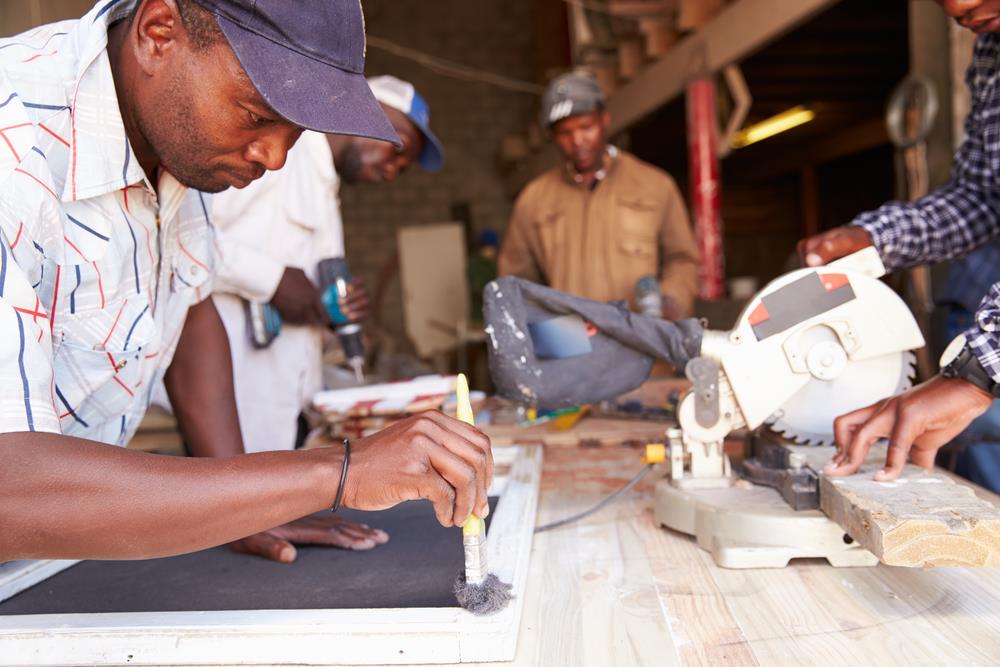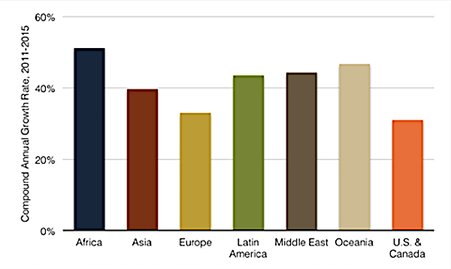Africa, especially Southern Africa, has amazing potential as well as strong resources and infrastructure despite the current political uncertainties there. The engineering industry and the mining industry in particular may be on their knees due to political developments and economic effect, but many of the engineering and mining skills are still there. We just have to be slightly more cautious than usual.
The process of finding the right suppliers in Africa is fraught with risks and challenges; however, the talent on that continent is unmistakable. Just think of inventions such as Pratley putty, the CT scanner and rail bogies, all of which were invented in Africa, and remember those modern icons of inventiveness Elon Musk and Mark Shuttleworth, both of whom are South Africans.
In general, Africa is filled with potential. Although skills are scarce and difficult to find, the skills that are present there are technically good. DCD, an international manufacturing and engineering company based in South Africa, provides products and solutions to the rail, defence, mining and energy and marine sectors, exporting products worldwide. Their CEO, Digby Glover comments, 'Our assets are world class but underutilised'. The simple fact is that such companies are sometimes overlooked simply because they are based in Africa. When they are considered, too often it is purely because of preferential exchange rates and cheap production, not because of the work they do.
There are reasons why Toyota and VW have assembly plants in Kenya and why Peugeot is planning a third plant The labour costs are still low, and many African countries can skip over changing technologies and move straight to implementing new ones. Based on this, in its The Mobile Economy Sub-Saharan Africa 2014 report, the GSM Association said, 'Sub-Saharan Africa has been the fastest growing region over the last five years in terms of both unique subscribers and connections'.
The internet also continues to grow, with internet capacity growth outpacing all other continents when compounded over the course of the decade.
In general, Africa is filled with potential. Although skills are scarce and difficult to find, the skills that are present there are technically good. DCD, an international manufacturing and engineering company based in South Africa, provides products and solutions to the rail, defence, mining and energy and marine sectors, exporting products worldwide. Their CEO, Digby Glover comments, 'Our assets are world class but underutilised'. The simple fact is that such companies are sometimes overlooked simply because they are based in Africa. When they are considered, too often it is purely because of preferential exchange rates and cheap production, not because of the work they do.
There are reasons why Toyota and VW have assembly plants in Kenya and why Peugeot is planning a third plant The labour costs are still low, and many African countries can skip over changing technologies and move straight to implementing new ones. Based on this, in its The Mobile Economy Sub-Saharan Africa 2014 report, the GSM Association said, 'Sub-Saharan Africa has been the fastest growing region over the last five years in terms of both unique subscribers and connections'.
The internet also continues to grow, with internet capacity growth outpacing all other continents when compounded over the course of the decade.
So how do you find such African 'diamonds' to procure from? Well, it's not as difficult as you may think. Almost all African countries have international chambers of commerce for large countries, such as the German Afrika Verein, which has joint chambers of commerce with most African countries, or the South African Shippers, Transport and Logistics Council; these organisations encourage members to export supplies from their countries'. Organisations such as Africa House and Varuna Consulting specialise in developing African trade links with international countries and companies.
However, these are generally all private organisations. Teamwork between national companies is still missing in Africa, and governmental development agencies remain largely ineffectual and steeped in historical and current compliance issues. This means you'll need to use private organisations and individuals to help you source, but those resources are definitely there and willing to assist since they are passionate about developing trade in Africa.
Next time, we will outline the extra steps you need to consider when sourcing in Africa.
However, these are generally all private organisations. Teamwork between national companies is still missing in Africa, and governmental development agencies remain largely ineffectual and steeped in historical and current compliance issues. This means you'll need to use private organisations and individuals to help you source, but those resources are definitely there and willing to assist since they are passionate about developing trade in Africa.
Next time, we will outline the extra steps you need to consider when sourcing in Africa.





